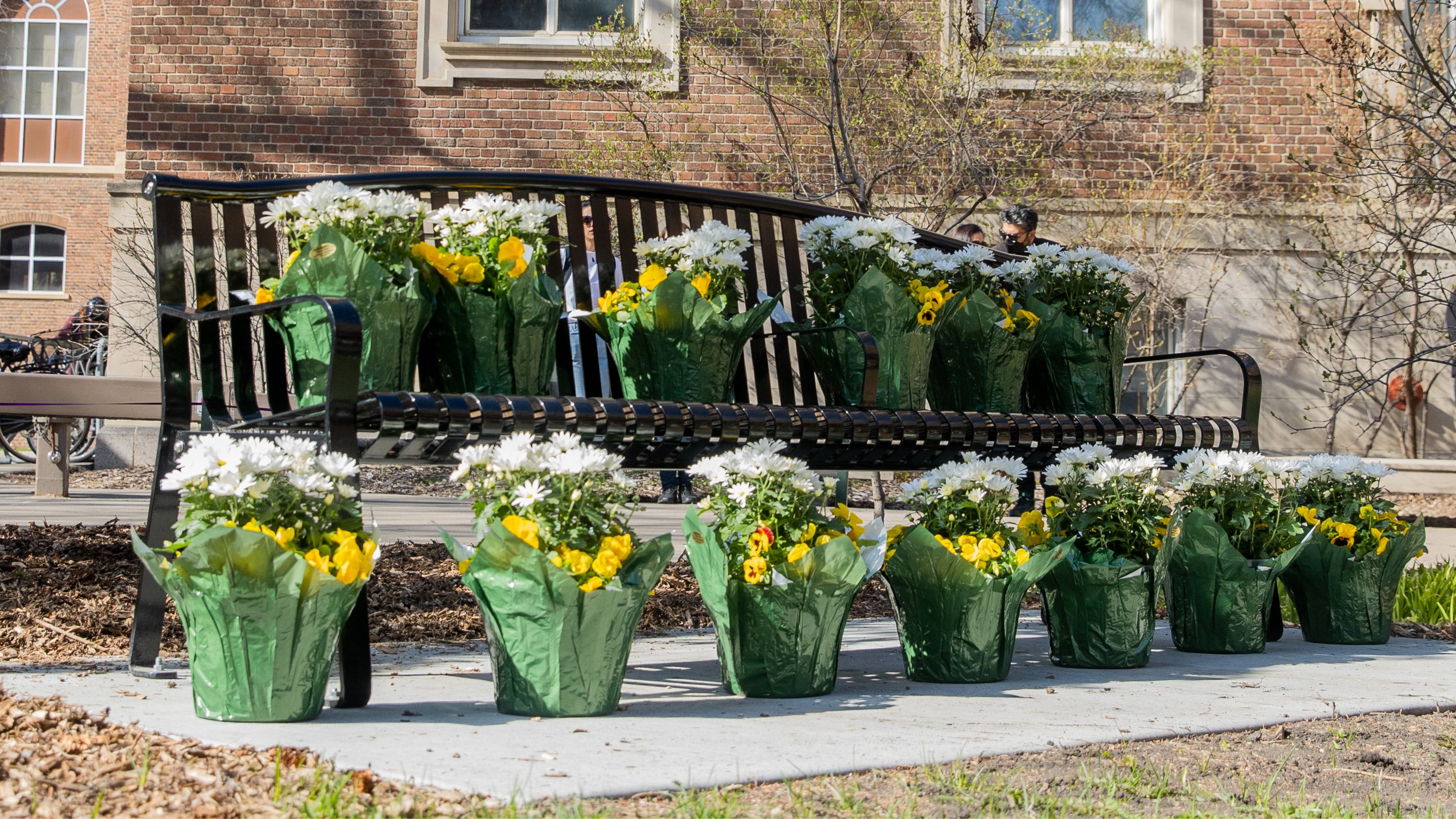Twenty-five years ago, on a snowy day in early January, Zohreh BayatRizi entered Canada–a country half the world away from Iran. She only came to Canada to pursue a master’s degree at University of British Columbia and did not intend to stay. But one year turned into two years, five years and twenty-five years. Fifteen of these years have been spent at the University of Alberta as a faculty member. She still feels that her presence in Canada is temporary; a quarter century of temporary life. For, like millions of other Iranians, the decision to leave was not made wholly by choice.
On this important personal anniversary, she and her team of graduate students write in the memory of the victims of the Ukrainian Flight PS752, which was shot down over Tehran on January 8, 2020 carrying 176 passengers and crew, mostly of Iranian origin. These victims were in many ways like us. They were forced out of their homeland but never really stopped caring about it. Those who shot down the airplane and then decreed we not make a big fuss over it could not have even imagined the grave consequences of what they had done. That airplane was carrying a nation. The Iranian passengers on that airplane were not political activists. They were ordinary people going about their own lives; people who had been forced to leave but their hearts remained in Iran and beat for it. For this reason, a large part of the Iranian nation inside and outside Iran saw themselves in these passengers. They saw that even if they go to the other side of the world, they are still not truly free–just like the characters of Bahram Beyzayi’s 1991 critically acclaimed film The Passengers, who were condemned to an inevitable, collective fate.
The Passengers, an allegorical film about life, death, and hope, informed the research we conducted in 2020 and 2021 in the Iranian community in Edmonton about the effects of the Flight PS752 tragedy on the community. Many respondents reported strongly identifying with the victims to the point of vividly imagining themselves on that airplane and dying. The idea of the research came from Rezvaneh, a PhD candidate in Sociology, who helped conduct the project along with Samira, a PhD candidate in Anthropology. Supported with funding from the Faculty of Arts and the Department of Sociology, the research focused on exploring how Edmontonians of Iranian heritage experienced and coped with the tragedy. They reported complex and strong emotional experiences, including grief, anger, shock and even shame. Most surprising, perhaps, many reported vividly imaging that they had been on that airplane and killed along with the passenger; an experience that we named ‘vicarious death’ and which stems from their intense identification with the victims.
The downing of Flight PS752 and the actions that followed it, including harassing the grieving families, became a turning point in Iran's contemporary history. A new sense of solidarity was created between millions of Iranians abroad and those in Iran who felt they shared the same destiny. We saw this emerging solidarity in our research where many of our respondents expressed frustration at the fact that the government in Iran affects their physical and emotional lives even halfway around the world. This solidarity inside and outside Iran has shown its effects in the widespread activity of Iranians abroad since the death of Mahsa Amini and the beginning of the Women, Life, Freedom movement, in the great march in Berlin in October and in putting aside past differences and uniting around key objectives. The Association of the Families of Flight PS752 Victims based in Toronto, Ontario has played a major role in these events. This solidarity in the uprising evokes the hopeful end of the film: the “passengers” have come back to life, carrying a mirror that shines light on the mourning ceremony and turns it into a celebration.
About Zohreh, Rezvaneh and Samira
Dr. Zohreh BayatRizi is an associate professor in the Department of Sociology in the Faculty of Arts in the College of Social Sciences and Humanities. Her research interests include sociology of death and grief, sociology of Iran, history of sociology, law and society and medical sociology. Since 2020, she has been developing a research program on the interplay between grief, identity, and belonging, addressing how relations of force and inequality impact the experience of grief.
Rezvaneh Erfani is a SSHRC Vanier scholar, Killam doctoral fellow and PhD candidate in Sociology. Her primary research is focused on environmental and climate activism and democracy in the Middle East with a focus on Türkiye and Egypt.
Samira Torabi is a PhD candidate in Anthropology. Her research interests include sexuality, gender and the anthropology of Iran. Her PhD project examines the mutually transformative intersection of piety and public expressions of sexuality on Iranian social media platforms. She is also the recipient of the Mojgan Daneshmand Pedram Mousavi and Flight PS752 Memorial Graduate Scholarship.
